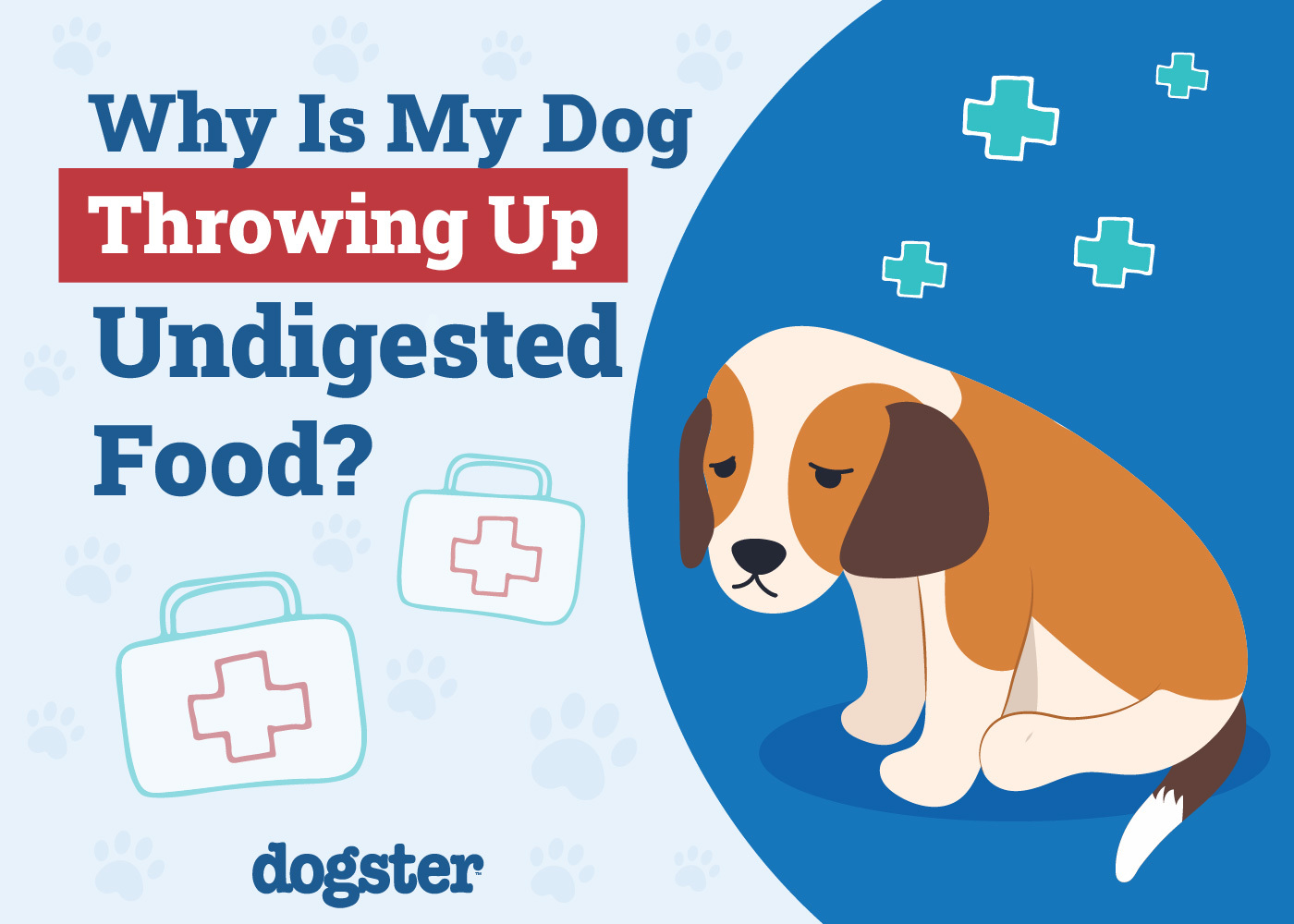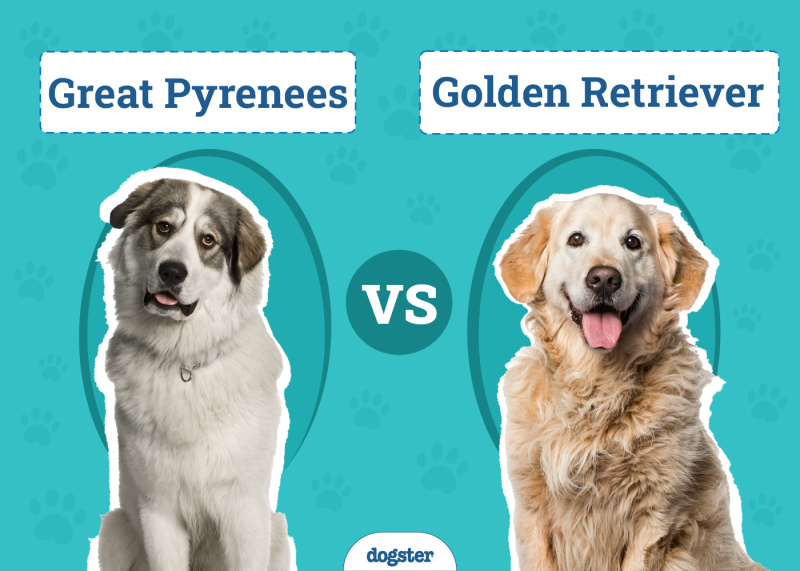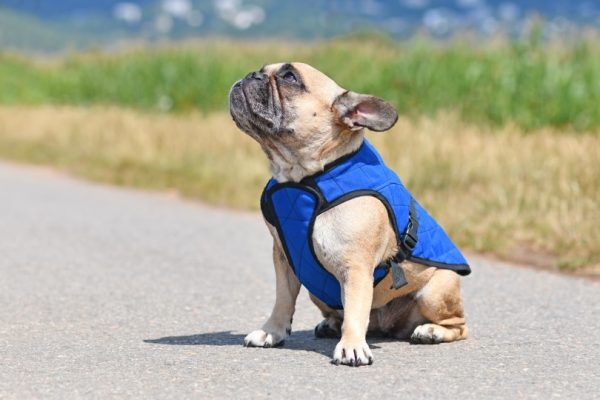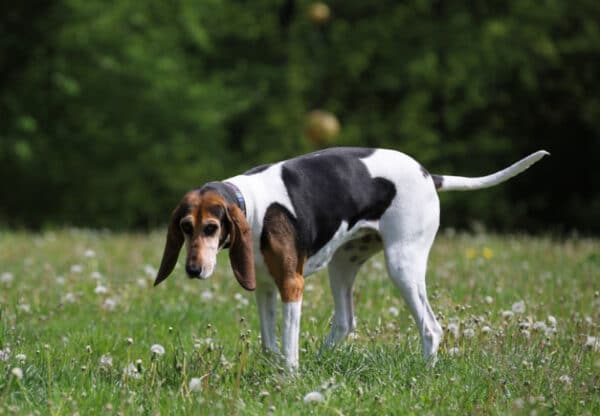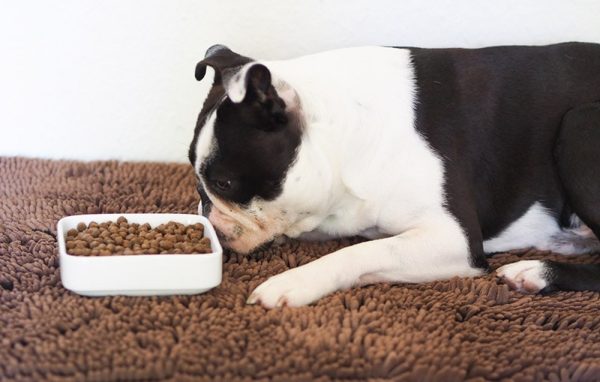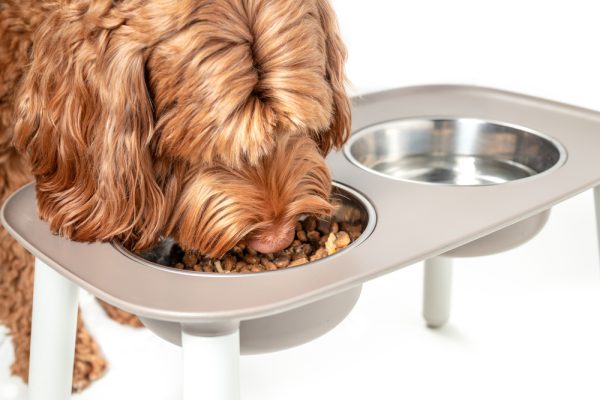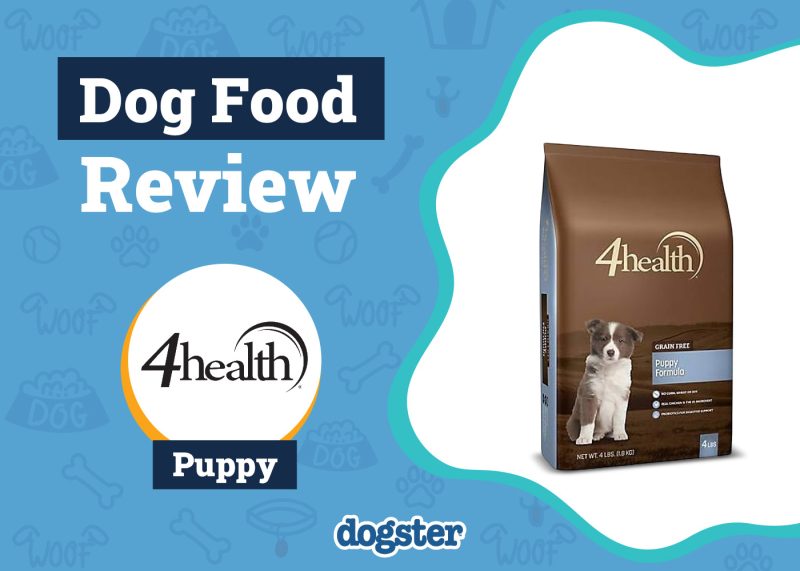Although you might be used to their daily behaviors and social cues, your pup might surprise you with an activity that is not common for them. For example, dogs can throw up undigested food, though this shouldn’t occur regularly.
So, why would your dog throw up undigested food at all? There are several different reasons that this can happen. Some are no big deal, while others can be serious. Let’s take a look at nine possible causes for this behavior.

The 9 Reasons Why Your Dog Is Throwing Up Undigested Food
1. Eating Too Much or Too Fast
Some dogs have a tendency to gorge on their food as if they were participating in a race. Other dogs will eat everything you put on their plate without stopping when they are full. Rapid expansion and overload of the stomach can both cause a dog to throw up undigested food.
Measure your dog’s diet carefully and do not overfeed your dog. If you have more than one dog, separate them during feeding to avoid competition-driven overeating. A great and easy way to get a dog to slow down is putting their food in a special slow-feeder dog bowl.
- Determine proper dog food portions and ideal daily intake with our helpful calorie calculator here.
2. Megaesophagus
Megaesophagus is a condition where the dog’s esophagus tube (the one that connects the mouth to the stomach) becomes enlarged and loses its ability to move the food down to the stomach. This condition can cause your pup to regurgitate undigested food because the food never actually makes it to the stomach. Regurgitation is different from vomiting: There is no gagging or retching, and the food is simply released back out from the esophagus.
If your dog is regurgitating, you need to get it checked by a veterinarian. If megaesophagus is confirmed, your dog’s treatment might include training them to eat in a special seat. This seat is designed to keep them in a vertical head-up position to help the food pass to the stomach using gravity.
If you need to speak with a vet but can't get to one, head over to PangoVet. It's our online service where you can talk to a vet online and get the advice you need for your pet — all at an affordable price!
3. Foreign Object
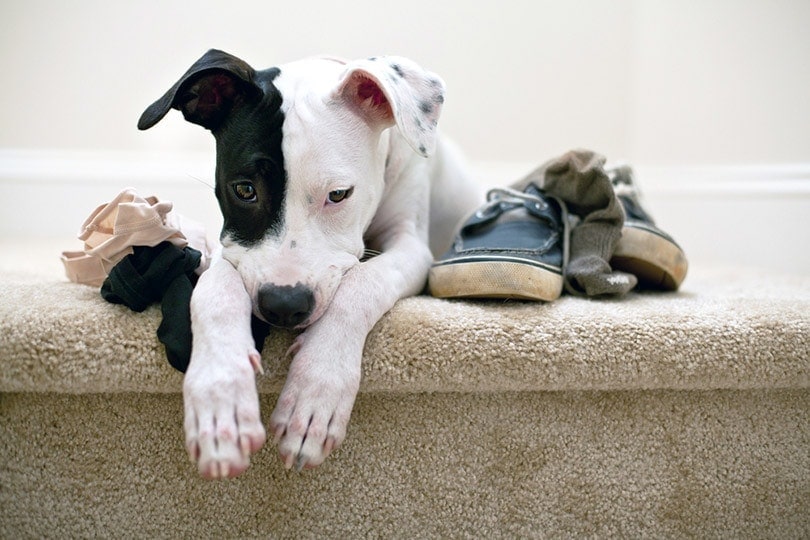
Some dogs just love to chew on things, and if they ingest an object or toy, this foreign object in their stomach will cause them to vomit undigested or partially digested food.
Prevention would be the best thing to do. You should always keep a close eye on your pup and the objects they put in their mouth. If you have a strong chewer, you will have to buy special toys. If you suspect your dog might have ingested something, please bring them to the veterinarian for a checkup. After diagnostic imaging tests, the vet will make a plan to remove any foreign object.
4. Gastritis or Stomach Inflammation
Gastritis is an inflammation of the stomach lining. It can be infectious and caused by bacteria or parasites, but it can also be a result of a foreign object irritating the stomach. You might see some mucus or blood vomited with undigested or partially digested food
If your dog might is constantly vomiting undigested or partially digested food, please bring them to the veterinarian for a checkup. The vet should be able to diagnose the cause of gastritis and prescribe an effective treatment.
5. Digestion Problems
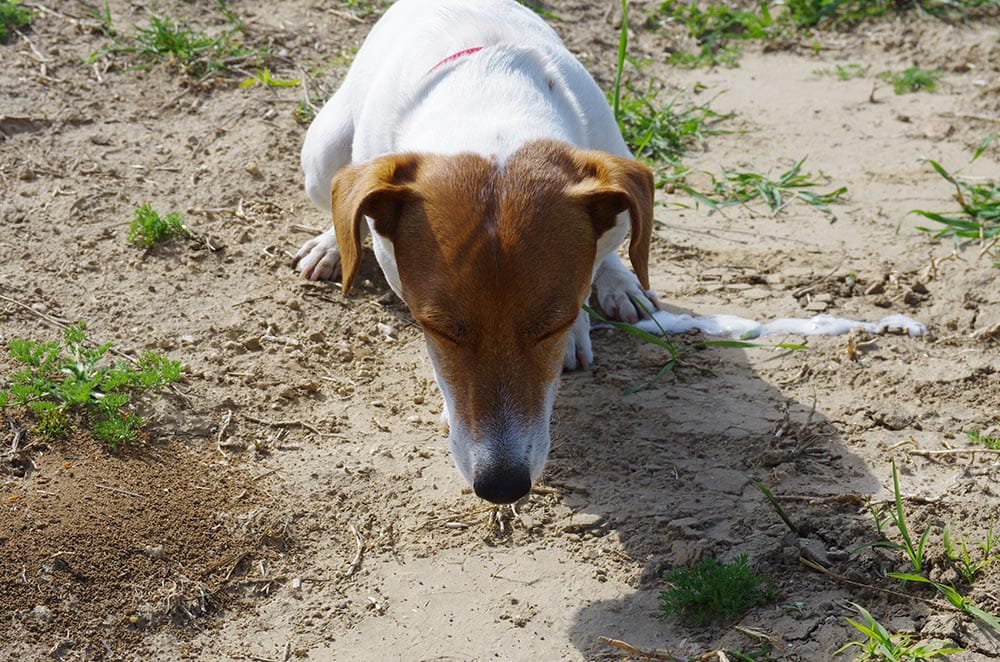
Sometimes, dogs can have digestion problems. They are not particularly discriminating when it comes to what they’re willing to put in their mouths and swallow. If your dog eats something that does not agree with them, it could quickly come back up before it gets digested. Anything from a whole carrot to too much grass can cause digestion problems that lead to throwing up undigested food.
The only thing that you can do about this problem is to keep a closer eye on your pup and what foods they get their paws on. Make sure any snacks you offer, including carrots, are cut or broken into bite-sized pieces. Teach your dog not to search for scraps in the kitchen. Make sure they are getting enough food at mealtime and the proper nutrition.
6. Food Sensitivities
Dogs can develop sensitivities to certain ingredients in their food. Many owners are surprised to find out that the food they have been feeding their dogs for such a long time is now causing issues. Sensitivities can also result in throwing up undigested food. All it takes is for your dog’s body to disagree with what’s in the stomach to create a vomiting scenario.
If your dog only throws up after eating a particular food or taking a specific supplement, simply stop giving that item to them and then visit the veterinarian with a sample of the suspicious food or supplement. The vet should help you determine if your dog might have developed a sensitivity to a specific ingredient.
7. Stress or Anxiety

When a dog feels stressed out or anxious for some reason, their digestive system starts to make it tough for them to digest food, at least temporarily. Stress and anxiety can develop for various reasons, including moving to a new home, meeting strange people in new places, facing a perceived threat, and dealing with children or other animals that they are not comfortable being around. Stress and anxiety can also lead to gastritis; the medical term is stress-induced gastritis.
It’s important to determine the cause of the stress or anxiety so it can be removed, if possible. After that, your dog should start to relax and be able to enjoy their food again without throwing it back up before it even has a chance to get digested. Look at each aspect of your dog’s life and figure out what’s changed to gain clues as to why the stress or anxiety has developed.
8. Motion Sickness
Many dogs enjoy going on car rides, but unfortunately, the rides do not always agree with them. All dogs are susceptible to motion sickness, although it seems to affect some dogs much more than others. If you notice that your pup tends to throw up their food when giving them a snack soon after a car ride, it is probably due to motion sickness.
Don’t give your dog any food or water for at least 30 minutes after taking a car ride anywhere. This should help them avoid needing to vomit as their belly settles down. You can also ask your veterinarian for motion-sickness medication, which can be utilized during long road trips when your pup will need to eat and drink during breaks.
9. A Blockage
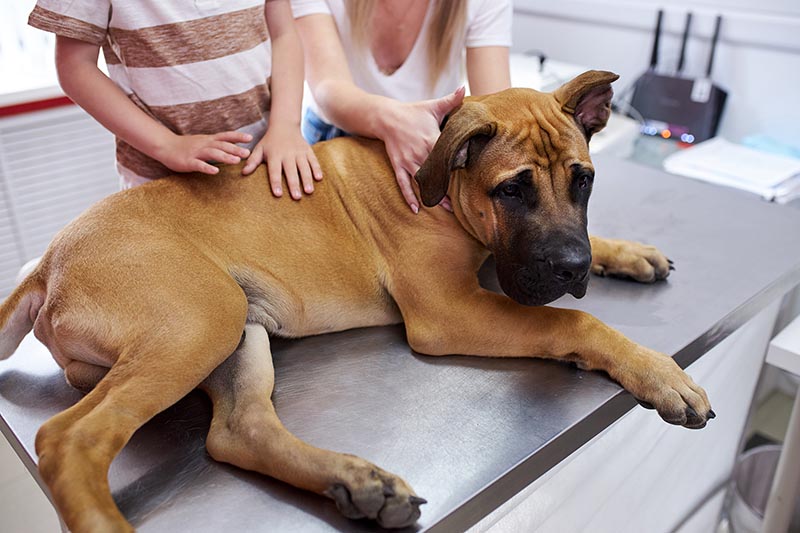
If your dog eats something that is not food and cannot be digested, like a sock, a stick, a small toy, or plastic garbage, it could create a blockage in their intestinal system that does not allow food to pass through. If this happens, your dog will likely feel the need to vomit up anything that they try to eat unless it’s a small snack.
It is important to see your veterinarian as soon as possible if you suspect that your dog has an intestinal blockage. X-rays and even surgery may be necessary to correct the problem. With any luck, your vet will be able to retrieve or help pass the object that is causing the blockage without the need for surgery.

Final Thoughts
There are many reasons that your pup may throw up undigested food, so it’s important to consider the circumstances and look for clues as to why it’s happening before you jump to any conclusions. If you’re in doubt, do not hesitate to reach out to your veterinarian for advice.
See Also:
Featured Image Credit: Yekatseryna Netuk, Shutterstock

